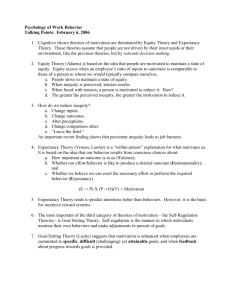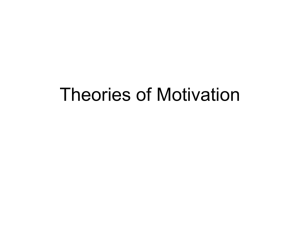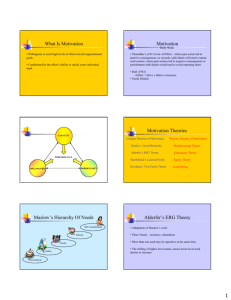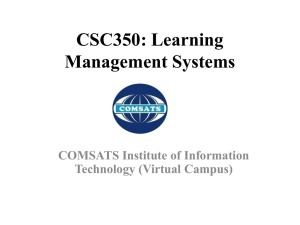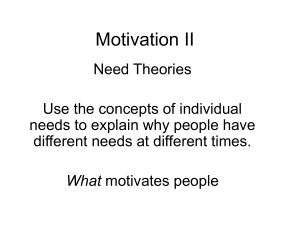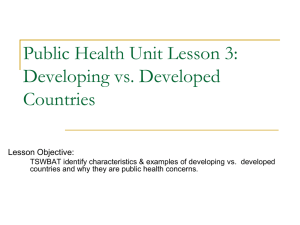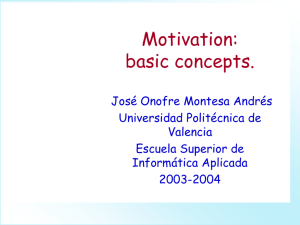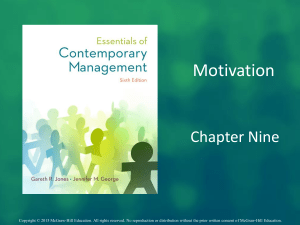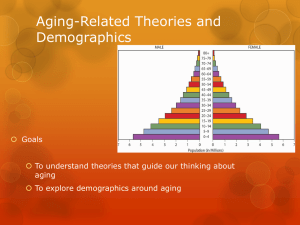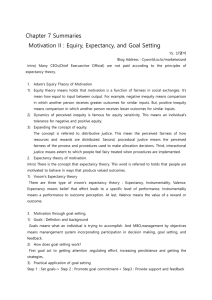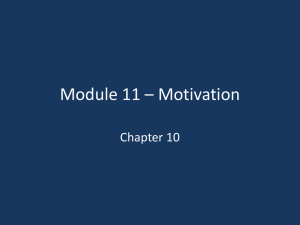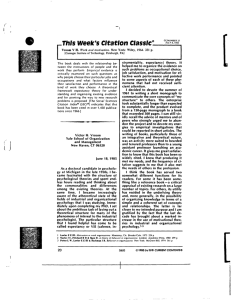MOTIVATION REVIEW
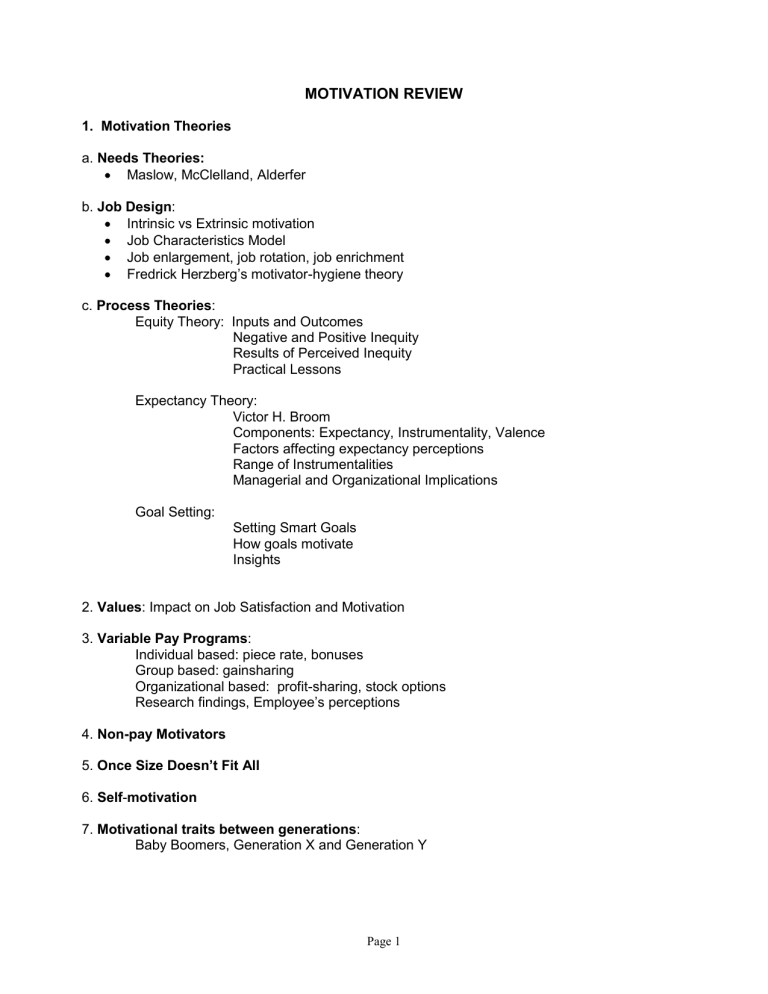
1. Motivation Theories a. Needs Theories:
Maslow, McClelland, Alderfer
MOTIVATION REVIEW
b. Job Design :
Intrinsic vs Extrinsic motivation
Job Characteristics Model
Job enlargement, job rotation, job enrichment
Fredrick Herzberg’s motivator-hygiene theory c. Process Theories :
Equity Theory: Inputs and Outcomes
Negative and Positive Inequity
Results of Perceived Inequity
Practical Lessons
Expectancy Theory:
Victor H. Broom
Goal Setting:
Components: Expectancy, Instrumentality, Valence
Factors affecting expectancy perceptions
Range of Instrumentalities
Managerial and Organizational Implications
Setting Smart Goals
How goals motivate
Insights
2. Values : Impact on Job Satisfaction and Motivation
3. Variable Pay Programs :
Individual based: piece rate, bonuses
Group based: gainsharing
Organizational based: profit-sharing, stock options
Research findings, Employee’s perceptions
4. Non-pay Motivators
5. Once Size Doesn’t Fit All
6. Self motivation
7. Motivational traits between generations :
Baby Boomers, Generation X and Generation Y
Page 1
